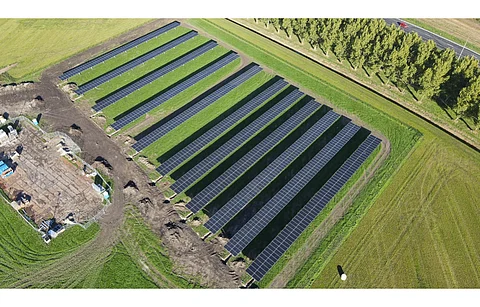

Sweden's state-owned power company Vattenfall has reached a final investment decision for a 76 MW agrivoltaic project in Germany's Mecklenburg-Western Pomerania to be built without any state subsidies while encouraging the site's use to grow organic free-range eggs and farming.
With the Tützpatz agrivoltaic project, Vattenfall says it wants to gain practical experience to undertake commercial projects of the kind in the future.
"With the Tützpatz project, we are now further developing this young technology on a commercial scale. Because agrivoltaics help the climate, they can increase biodiversity and serve as an additional source of income for agriculture," said Head of Solar Division at Vattenfall, Claus Wattendrup.
Tützpatz agrivoltaic project is planned to come up on 95 hectares space with construction planned to start in early summer 2023. Vattenfall will use bifacial modules, propping these up on elevated, single axis tracker systems.
Solar power generated by the subsidy free project will be marketed via a power purchase agreement (PPA).
Vattenfall is currently testing the agrivoltaic concept with a 700 kW system in the Netherlands.
Agrivoltaic concept in Germany got a thumbs up from the University of Hohenheim in Stuttgart and Thünen Institute in Braunschweig with their September 2022 research counting 10% of the country's most cost-efficient farms with 'good prerequisites' can help cover around 9% of national electricity demand by locating panels on 1% arable land (see Study Explores Agrivoltaics As Positive For Germany).
